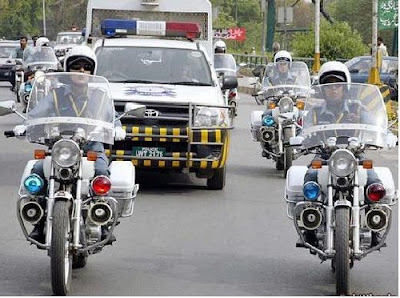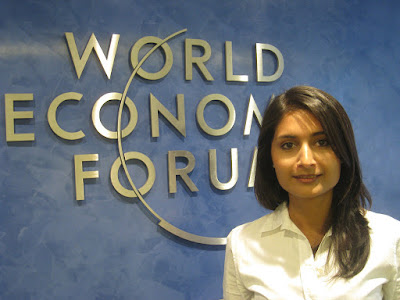Is Pakistan Unsafe?
While India leads the world in total number of murders, South Africa is number one by per capita murder rate. The top five countries by total number of homicides are India, Russia, Colombia, South Africa and United States, according to Nationmaster.com.
Based on murders per 1000 people, India ranks at 26 along with Yemen while Saudi Arabia and Qatar have the lowest murder rates ranking them at 61 and 62 respectively on a list of 62 countries. Though Pakistan is not included in this list, its per capita rate of 0.0602 per 1000 would put it at number 20 along with Poland and just slightly above the US which is at number 24. Pakistan's murder rate is also well below the weighted average of 0.1 per 1000 reported for the world by NationMaster.com.
There were 32,719 incidents (Nationmaster puts it at 37,170) of murder recorded in India, whereas there were 28,904 in Russia, 26,539 in Colombia, 21,995 in South Africa, 16,692 in the US, 13,829 in Mexico and 9,631 in Pakistan, the report compiled by National Crime Records Bureau and released by the India's Union Home Ministry, said.
Experts believe the actual crime rate in India (and probably Pakistan) is even higher with many cases going unreported.
Overall, five million cases of crime, including murder, rape and drug offenses, were reported in India in 2007-08, the report compiled by the National Crime Records Bureau (NCRB) and released by the Indian home ministry says.
It is interesting to note that Pakistan does not really live up (or down, depending on your perspective) to its undeserved reputation as an "unsafe country" when compared on the basis of real data and crime statistics. On the contrary, it appears to be about as safe as the United States or neighboring India. It is a few, high-profile Al-Qaeda and Taleban terrorist leaders, and the acts of violence they inspire, that contribute to Pakistan's image as an unsafe place. The Western and Pakistani media's pre-occupation with wall-to-wall reporting of such violence enhances the stature of the terrorists and serves their purposes by attracting misguided young men to their destructive cause.
The Pakistan travel advisories by the US, UK and other governments advising their citizens not to travel to Pakistan dramatize the concerns about the security situation there. Refusal by sports teams such as the Australian cricket team to play in Pakistan also wrongly reinforce security concerns.
Among the BRIC countries(Brazil, Russia, India and China), Brazil had some 55,000 homicides in 2005 -- a few thousand more civilians than in three years of war in Iraq, according to leading estimates as reported by Reuters news agency. In 2005, 31,000 murders were reported in China, down 3,000 from the year before, according to He Ting, director in the ministry's criminal investigation bureau, as reported in Shanghai Daily. Neither Brazil nor China are included the NationMaster.com report ranking 62 nations.
For the average tourist or businessman or investor, Pakistan is as safe or safer than the BRIC countries attracting a lot of attention as today's most important emerging economies. It is important for Pakistani government, media and the people to accurately inform the world about the real crime data and violence statistics and put them in perspective through a media campaign. If, instead of staying away from Pakistan, every one joins Pakistanis to defy the terrorists and the warmongers, the world will be safer for all of us.
Based on murders per 1000 people, India ranks at 26 along with Yemen while Saudi Arabia and Qatar have the lowest murder rates ranking them at 61 and 62 respectively on a list of 62 countries. Though Pakistan is not included in this list, its per capita rate of 0.0602 per 1000 would put it at number 20 along with Poland and just slightly above the US which is at number 24. Pakistan's murder rate is also well below the weighted average of 0.1 per 1000 reported for the world by NationMaster.com.
There were 32,719 incidents (Nationmaster puts it at 37,170) of murder recorded in India, whereas there were 28,904 in Russia, 26,539 in Colombia, 21,995 in South Africa, 16,692 in the US, 13,829 in Mexico and 9,631 in Pakistan, the report compiled by National Crime Records Bureau and released by the India's Union Home Ministry, said.
Experts believe the actual crime rate in India (and probably Pakistan) is even higher with many cases going unreported.
Overall, five million cases of crime, including murder, rape and drug offenses, were reported in India in 2007-08, the report compiled by the National Crime Records Bureau (NCRB) and released by the Indian home ministry says.
It is interesting to note that Pakistan does not really live up (or down, depending on your perspective) to its undeserved reputation as an "unsafe country" when compared on the basis of real data and crime statistics. On the contrary, it appears to be about as safe as the United States or neighboring India. It is a few, high-profile Al-Qaeda and Taleban terrorist leaders, and the acts of violence they inspire, that contribute to Pakistan's image as an unsafe place. The Western and Pakistani media's pre-occupation with wall-to-wall reporting of such violence enhances the stature of the terrorists and serves their purposes by attracting misguided young men to their destructive cause.
The Pakistan travel advisories by the US, UK and other governments advising their citizens not to travel to Pakistan dramatize the concerns about the security situation there. Refusal by sports teams such as the Australian cricket team to play in Pakistan also wrongly reinforce security concerns.
Among the BRIC countries(Brazil, Russia, India and China), Brazil had some 55,000 homicides in 2005 -- a few thousand more civilians than in three years of war in Iraq, according to leading estimates as reported by Reuters news agency. In 2005, 31,000 murders were reported in China, down 3,000 from the year before, according to He Ting, director in the ministry's criminal investigation bureau, as reported in Shanghai Daily. Neither Brazil nor China are included the NationMaster.com report ranking 62 nations.
For the average tourist or businessman or investor, Pakistan is as safe or safer than the BRIC countries attracting a lot of attention as today's most important emerging economies. It is important for Pakistani government, media and the people to accurately inform the world about the real crime data and violence statistics and put them in perspective through a media campaign. If, instead of staying away from Pakistan, every one joins Pakistanis to defy the terrorists and the warmongers, the world will be safer for all of us.



Comments